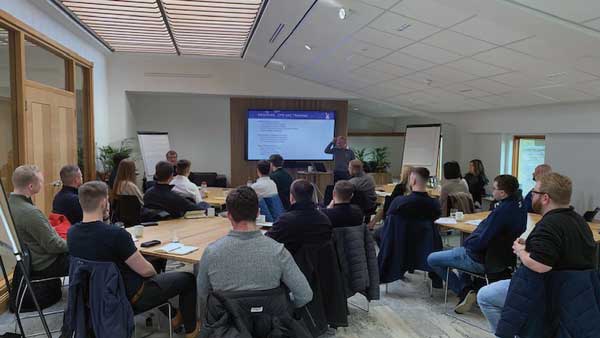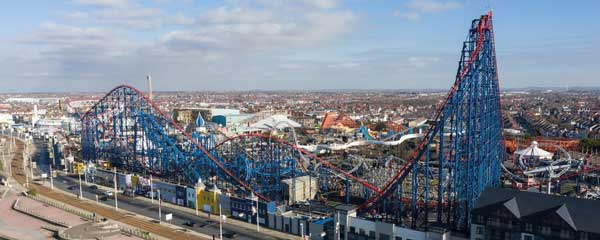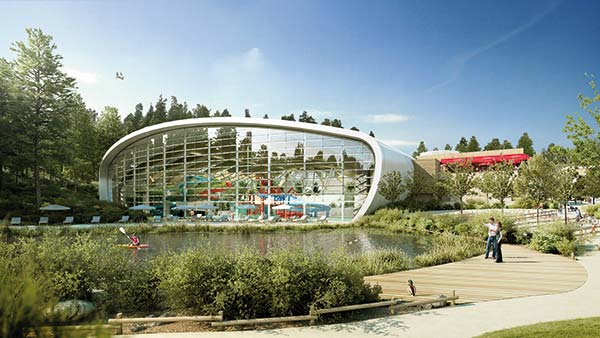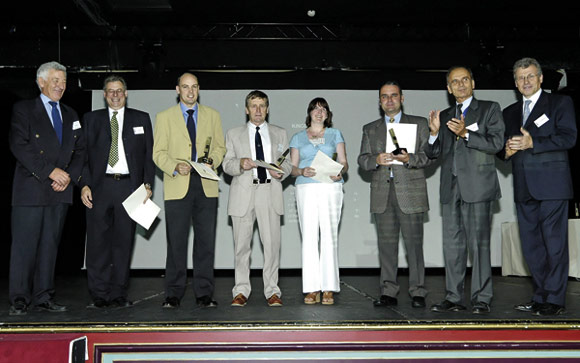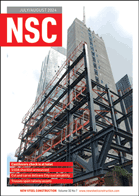50 & 20 Years Ago
Britain’s first commercial monorail
Taken from Building with Steel, 1967
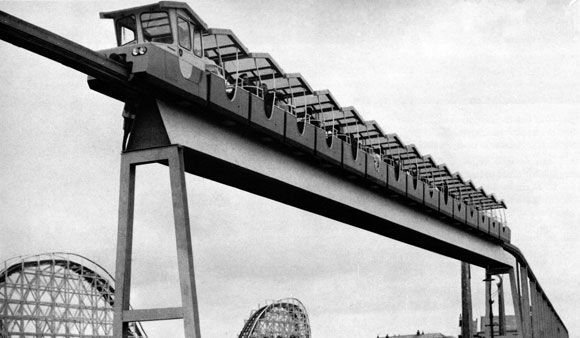
The track passes over a wide roadway and to provide maximum strength the longer span is supported on welded portal frames
It is well recognised that one solution to easing transport problems in Britain’s densely populated towns and cities lies in the overhead monorail: for this reason particular interest attaches to the monorail system that came into operation last season in Blackpool Pleasure Beach. It embodies the facilities which will be necessary in a major monorail system such as automatic safety devices, stations with controlled platform entries and exits and a service station into which trains can be switched on to self-propelled rail sections to stock or service bays. Furthermore, the system has been designed for fully automated operation, to be introduced after a suitable running-in period. Another point of interest is that this is said to be the first commercial project of its kind in the country: it is in fact a self supporting, profit-making proposition.
Mass transportation within the grounds of the Pleasure Beach had been a matter of concern for some time past, chiefly for two reasons, (a) because of continued expansion some form of transportation was obviously required to improve crowd flow and (b) on their first visit most people like to have an overall idea of the layout of the park and the amenities available. These requirements are met by an overhead monorail system, which also occupies minimal valuable ground space, is speedy yet quiet, offers minimum obstruction to viewing and is in keeping with the progressive image of the Pleasure Beach.
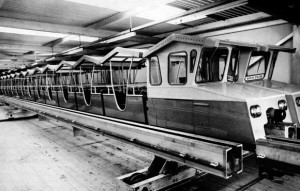
When not required for long periods or if servicing is necessary the trains are run into the station which has four 105ft long track sections. Three of these may be moved sideways to permit close storage of the trains and the fourth is designed to facilitate maintenance
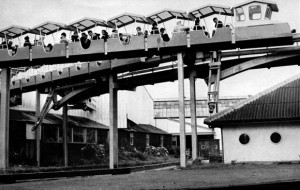
Train of 15 semi-enclosed glass fibre and aluminium carriages on a section of track carried by straight universal column supports
There are four 105-ft long trains on the mile-long continuous track, these having 15 carriages each holding four people in comfort: when all four trains are in use a capacity of 4,000 passengers an hour can be attained. Speeds of up to 12 ft/sec are possible, but because of the high ratio of curved to straight sections in the track they are usually kept below this figure in order to give smooth running.
The glass fibre and aluminium carriages have been designed with a low profile because the trains pass through various buildings, and also to offer minimum resistance to winds, which in gales may be as high as 100mph. Each train is driven by twelve 11/2hp motors and for the sake of quietness and comfortable riding all wheels are rubber tyred.
The 5,200 ft-long track is carried on 170 supports spaced 35 ft apart on straight sections and 25 ft on curves. The steepest gradient is 1 in 71/2 and track height varies from ground level to 35 feet.
The track is constructed from two 12 in. by 4 in. steel channels turned toes inward and spaced to give a 4 in. gap between them. The curves are widely varying types such as transition curves, parabolic curves, spiral curves and circular curves: the tightest curves are 50 ft radius. Track sections are matched in pairs and secured with welded diaphragms and turnbarrel bolts. For spans up to 45 ft in length reinforcement is provided by heavy angles bolted to the underside of the track. In the case of the 75-ft and 100-ft spans over the main road dividing the Pleasure Beach the track is supported on welded box girders of trapezoidal section, the channels being welded to the top surface.
There are several types of support columns, including straight universal column sections ranging from 10 in. by 10 in. to 14 in. by 141/2 in., welded portal frames and cantilever supports from existing structures. To minimize corrosion caused by the marine atmosphere the whole of the track and its supports are galvanised and the bolts sheradized, followed by a suitable painting sequence.
The various associated buildings, i.e. the two stations giving passenger access to the trains and the service station and adjacent train storage bay are all steel-framed structures clad with aluminium sheeting.
A Swiss firm designed the above monorail system and erection was under the general supervision of F.E. Wright, General Manager, Blackpool Pleasure Beach Ltd.







